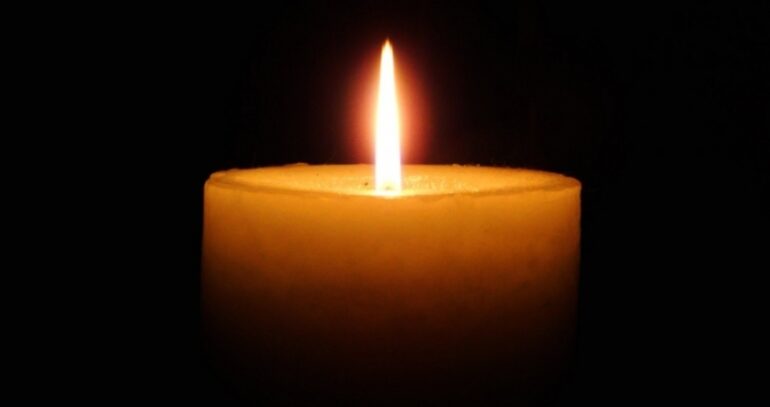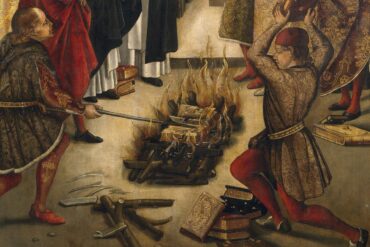Authors prologue to set the stage
Very few books on the festivals of Israel include May Day. But Rabbi Menaḥem Froman’s “Give me Time” does. My reflection on Yom HaShoah comes on the heels of things I read, heard and thought on this years transition from May Day to Yom HaShoah. Looking back the day after (I wrote this piece the night after Yom HaShoah) I think the piece is reflecting the transition that these days fell out on in regard to the counting of the Omer — Hod she’bGvura into Yesod she’bGvura. I’ll open with the opening lines in Rabbi Froman’s piece, titled האמונה באחד (The Belief in One). It’s what I read the day before Yom HaShoah this year:
“May 1, 5752. I see in this confluence: a non-Jewish date with a Hebrew date. To draw that universal day into the Jewish year, to bring in the ‘Brotherhood of the Nations’ to the calendar of the Worlds Nation.”
Yom HaShoah
Pain and loss is very personal. Suffering and loss that I felt inflicted on me throughout my life simply because of my identity – is my story. My pain. And the first reaction to that pain and loss, of being singled out and oppressed is to retreat into ourselves. I don’t let others in there.
A mourner’s meal, in Jewish tradition, is an egg. A perfectly round food, surrounded by a shell. With no mouth. When one enters a mourner’s home to visit, one does not initiate the conversation. If the mourner sits in silence, we sit with him. If mourners share, we listen but don’t provoke them to speech. Because the experience of personal pain closes us to ourselves. And we honor that self, that private world – be it hell or not.
And thus the Holocaust, our people’s greatest national tragedy of late, leaves us with a pain all our own. And I can imagine that is the feeling of any other nation’s experience of pain. Never mind comparing – but just even speaking from that pain to an outsider seems confusing, impossible. Because it wasn’t YOU – it was ME.
Today, a woman wrote me a comment, asking why our Israeli-Palestinian network isn’t doing a program on the Holocaust.
“It’s an important part of our identity and we need to be presenting our identity to each other – like we do on the Muslim holidays.”
“I agree completely,” I wrote her. “But not today.”
Yom HaShoah is a day for me that’s our people’s day to speak quietly, to feel the goosebumps and allow the horror its space – to flood our memory, flesh and story. I wrote her that she’s right – but for me, today is not the day for it. Allow us our personal space.
On the radio, they interviewed the Israeli Ambassador to Poland about Polish participation in the March of the Living ceremonies. She mentioned that because the Gregorian calendar date of the Warsaw ghetto uprising is April 19th and the Jewish commemoration always follows our Hebrew calendar – there is always a discrepancy of date, and therefore they largely happen separately. Our space remains our own. Our allegiance to our pain, story and thus IDENTITY protects us.
But…
As the mourning process continues, the symbol is no longer of the “mouthless food.” Throughout the shiva week, one opens up and shares stories. As time goes on, it’s this sharing that carries the memory forward. Perhaps the difference is between experience, memory and message. Which can actually be shared? As reports come in about the lack of awareness about the Holocaust in Austria and the United States, have we failed to speak?
But I wonder, if the powerful trauma of the Holocausts has confined us within our own nation’s story? I know the fear of placing our pain alongside the pains of others. Their pain will never be as visceral or as close as our own – that’s human nature. To share implies something that could possible be shared. And the personal silence of the Shoah can’t be. But could there be now, with the passing of the survivors, also a transition?
This national/universal tension nips after all of Jewish life today.
The trauma of the Shoah has created a Jewish sensitivity to the value of our life that is so powerful. What can stand before it, the loss of a life? When a Jew is killed today because he is a Jew, I count it as six million and one, six million and two. An obsessive post-traumatic need to remember, that rides upon perhaps the original call of our people: To proclaim the Divine Image that can be lost with each one of us?
But…
Speaking is the beginning of opening up. Sharing is the connection between the experience within my self and the experience within another. It definitely contains the risk of constricting, limiting, quantifying (or bringing into comparison) a pain which is ultimately total, beyond any words and number. But perhaps in that betrayal also lies the healing – if we want to be healed?
I understand that it’s been important to simply stand here bleeding, crying bereft in the connection to the sheer terror and to expose the wound – like the survivor who walked into synagogue on Yom Kippur with a cheese sandwich and screamed before the congregation “I’ve fasted enough in this world.” And to G-d she yelled, “The only atonement left is for YOUR sins!”
I don’t want to leave or deny the bare raw truth in that. The rage. The pathos doesn’t have to say anything to anyone and can stand before the masses like a mourner before the corpse – shirt torn with ashes on my forehead.
But…
Do we heal from that? Don’t we just return to that same state every year? Doesn’t it seep into our relations with the rest of the world – our potential conversants? That turning inwards carries its price. Have we not yet assumed what it means to be the carriers of Never Again throughout the world because the weight of that message holds us captives to ourselves? While some seek to liberate us of that weight in the rush to the Other, some of us can’t yet find a message beyond the fear of the experience itself.
If we experience this day on Hod. And emerged into Yesod. How do we reach Malkhut?





